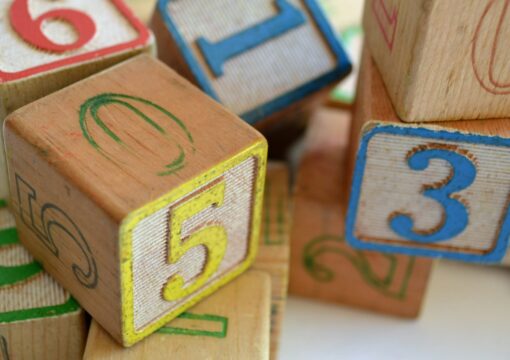On 30 October 2024, the Chancellor, Rachel Reeves, will publish her Autumn Budget. There has been some speculation that this will include changes to the existing Capital Gains Tax (CGT) system. Consequently, the information contained in this article may change.
You might wish to take action to make use of some of the reliefs below before they are altered. The judgement and the responsibility for action are yours, and we recommend that you take sufficient professional advice to feel comfortable with any decision that you make.
So, in that context…
What is CGT?
Capital Gains Tax (CGT) is a tax on the profit made when you sell (dispose of) an asset that has increased in value. You are taxed upon the gain made, not the amount of money you receive.
Disposing of an asset includes: a sale, giving (freely) as a gift, swapping for something else, receiving compensation for it (when something is lost or destroyed).
The rules
CGT must be paid when you sell ‘chargeable assets,’ which include:
- most personal possessions worth £6,000 or more, apart from your car
- property that is not your main home
- your main home if you’ve let it out, used it for business, or it is very large
- shares that are not in an ISA or PEP
- business assets
The amount of CGT you pay depends on what you are disposing of, what profit or gain you have made, your income tax band and the current tax-free allowance available to you.
From April 2024, you can earn up to £3,000 (your tax-free allowance) before you must pay CGT (£1,500 for trusts).
However, your asset may qualify as a chattel (tangible, movable property), where (if applicable) you only need to pay CGT if the disposal proceeds are more than £6,000.
Even if your asset is overseas, you may have to pay CGT in the UK. As well as this, you must pay tax on gains made on property or land in the UK, even if you are non-UK resident.
The rate of CGT you pay depends on your income tax band. These are the rates for the current tax year (2024/25):
- Basic rate: 18% on residential property, 10% on other assets
- Higher rate: 24% on residential property, 20% on other assets
Note: Your taxable gain will be added to your taxable income, so you could be pushed into a higher tax band.
Reliefs, allowances and CGT-free
You may be able to reduce any tax you pay by claiming a relief, such as Investors Relief or Business Asset Disposal Relief. The reliefs available to you depend upon the asset you disposed of. For more information, read our guide on the tax rates and allowances.
Some assets are tax-free and you don’t have to pay CGT if all the gains you make in a year are under your tax-free allowance
If you jointly own an asset with someone else, then dispose of it, you must pay CGT on your share of the gain.
Generally, you do not have to pay tax on gifts to your spouse, civil partner or charity. However, they may have to pay tax on any gain if they dispose of the asset later on. The difference between the value when you first owned the asset and when they disposed of it will be calculated as the relevant gain.
If you sell an asset to charity for both more than you paid for it but less than the market value, you may have to pay CGT. Your gain is calculated by the amount the charity pays you, rather than the value of the asset.
You do not pay CGT on any gains you make from some assets including ISAs or PEPs, UK government gilts and Premium Bonds, as well as betting, lottery or pools winnings.
Deducting losses
You can report ‘allowable losses’ on a chargeable asset to HMRC to reduce your total taxable gains. When you report a loss, the amount is deducted from the gains you made in the same tax year.
If your total taxable gain is still above the tax-free allowance, you can deduct unused losses from previous tax years. If they reduce your gain to the tax-free allowance, you can carry forward the remaining losses to a future tax year.
When selling a property, you can deduct any cost on home improvements that don’t count as maintenance from your taxable gain. Estate agent and solicitor fees can also be deducted.
There are a variety of rules regarding reporting and claiming assets, we would advise you check these in greater detail on the government website.
Calculating your CGT liability
This is how to decide how much you owe in CGT:
1. Calculate the gain for each asset you have disposed of during the tax year.
2. Add the gains together. Deduct allowable losses, that could have been made when selling other assets.
3. Deduct the CGT allowance of £3,000 (£1,500 for trusts), or £6,000 if your asset is an applicable chattel.
What information should you keep for CGT?
To effectively claim against your gains and losses, it’s important to collect records, so you have all the available details to fill in your tax return. For individuals, these must be kept for at least a year after the self-assessment deadline. Businesses must keep records for 5 years after the deadline.
You can also report your gains using the ‘real time’ CGT service. It’s worth noting that if you’re registered for self-assessment, you still need to include details of the sales in your self-assessment tax return, even if you are using the ‘real time’ CGT service.
When disposing of residential property, you must report and pay any CGT on most sales of UK property within 60 days.
If these processes are new to you, it can take a few weeks before you are fully set up on the system, so leave plenty of time…
To keep the best possible records, that allow you to claim against your gains and losses, we advise you keep bills and invoices with the relevant date and:
- What you paid for an asset
- Additional costs (fees for professional advice, Stamp Duty, improvement costs, etc.)
- What you received for the asset and in what form (instalments, etc.)
It’s worth getting any precious assets you have valued when you first acquire them to make your CGT calculations simpler. Also, keep any contracts for buying and selling assets that you might receive from solicitors or stockbrokers.
As discussed, a gain is usually specified as the difference between what you paid for an asset and what you sold it for. However, there are some situations where you use the market value instead.
Need some guidance
CGT can be a complex area; if you require any guidance, please contact us and member of our team will be happy to assist you.










